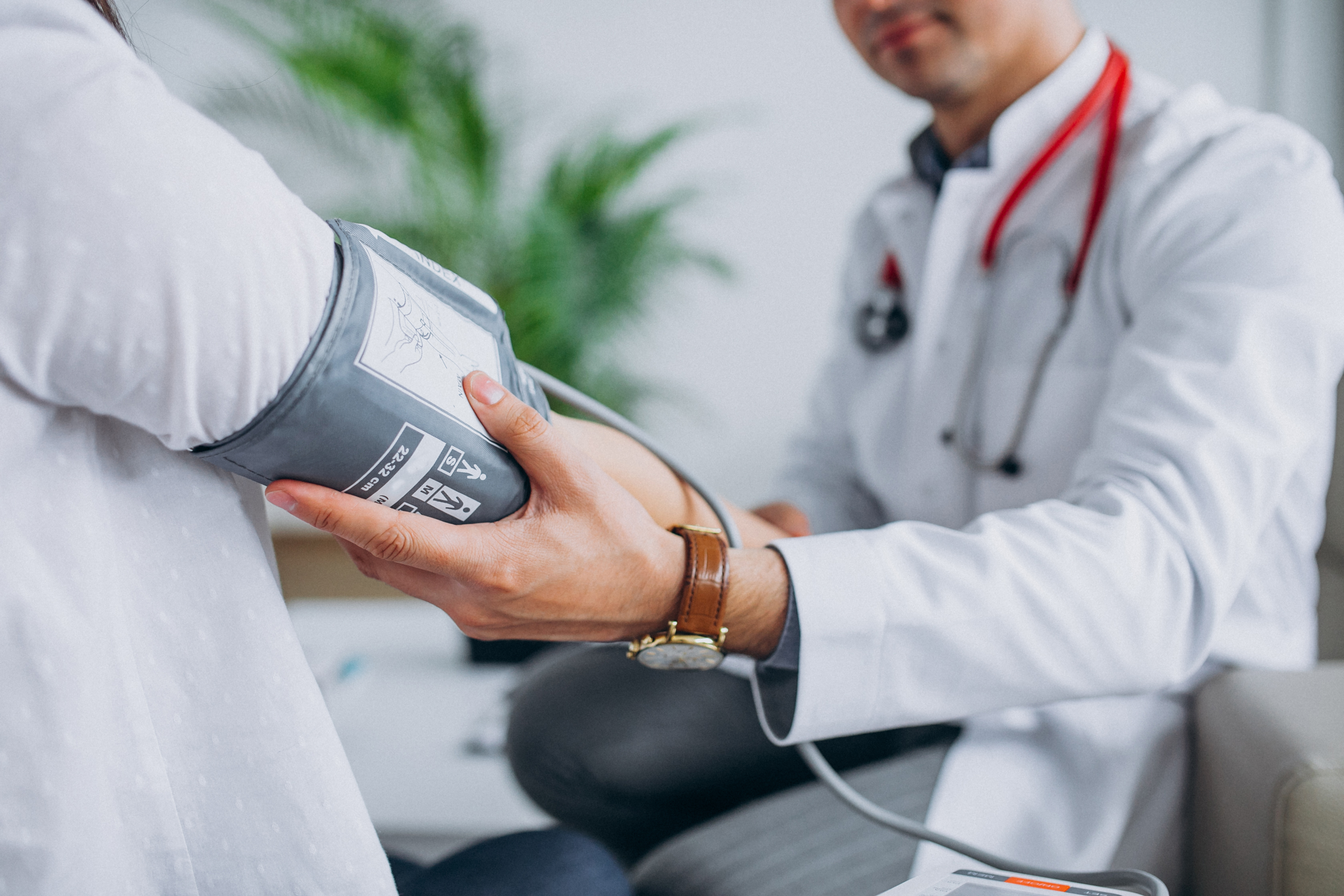What are normal cholesterol levels in the UK?



Cholesterol is a fat-like waxy substance in our bodies. It is one of the essential molecules in our body and has diverse functions in the human body.
Cholesterol is commonly vilified because an excessive amount of it can form fatty plaque, narrowing the walls of the arteries and leading to a heart attack or stroke. But this should not detract from the vital role it plays in our body; without it, we would not exist.
Cholesterol is critical to our body, and we genuinely need it. It serves several functions in our bodies. Some of these are:
It is found in all the cells of our body. It is essential for maintaining the structural integrity of our cells.
It is a precursor for all steroid hormones, such as oestrogen and testosterone, which are produced in the ovaries and testicles, respectively. It is also transported into the adrenal gland to aid in other steroid hormone synthesis, such as corticosteroids.
Cholesterol in our skin is required in the initial steps of synthesizing vitamin D from sunlight.
Bile acids are synthesized from Cholesterol and assist in fat digestion. Bile acids are synthesized from Cholesterol exclusively in the liver and play an essential role in cholesterol homeostasis. Cholesterol is excreted from our body through bile.

We get cholesterol from the food we eat, and the cells within our body can make cholesterol.
We get dietary Cholesterol only from animal products. There is no cholesterol in foods that come from plants. So, there is no cholesterol in fruit, vegetables, or grains. The significant sources of dietary Cholesterol are eggs, meat, and dairy products. Foods rich in saturated fats, such as cheese, yoghurt, ghee and, fatty meat, processed meat, increase the levels of “bad” Cholesterol in the blood.
Although fatty meals provide Cholesterol, there is a common misconception that they are a significant source of Cholesterol. In contrast, Cholesterol is primarily synthesized within our body. Almost every cell can make Cholesterol. Once considered the leading site for cholesterol production, the liver contributes about 10% of the total synthesis. Other organs, like the intestines, also contribute around 10% of the endogenous synthesis.
Cholesterol is derived from sugars and fat molecules through multiple processes inside our cells. The daily production is approximately 800 mg, but it is higher in obese individuals and patients with metabolic syndrome.
The Cholesterol levels in our bodies are balanced by cholesterol synthesis, dietary intake, and excretion. In order to prevent a potentially dangerous build-up of Cholesterol in the human body, excess Cholesterol must be converted into other chemicals, such as hormones, or eliminated via bile in the faeces.
Hereditary factors play the most crucial role in determining the serum cholesterol concentrations of individuals, but here are some risk factors for high cholesterol levels.
Obesity (particularly abdominal obesity)
Unhealthy lifestyle (lack of exercise, smoking, drinking alcohol)
Underlying medical conditions include diabetes mellitus, chronic kidney disease, hypothyroidism, and inherited defects in cholesterol metabolism.
Prolonged, unmanaged emotional stress
Diets rich in saturated fat (butter, cheese, red meat, and other animal-based foods).
To put it simply, they are not. Fats and cholesterol are two different forms of lipids that are not identical. Fatty molecules (also called Triglycerides) and Cholesterol are present in our diet and circulate in our bloodstream, packaged together in a ball-like complex. They differ in their roles and how they are processed in our bodies.
Triglycerides can be broken down by our cells to give out calorie energy, but Cholesterol does not provide energy. Excess Triglycerides can be stored in our tissues as an energy reserve. In contrast, excess Cholesterol cannot be stored and instead puts you at risk for heart and cardiovascular disease. However, too high levels of triglycerides also may contribute to the hardening of the arteries or thickening of the artery walls, which increases the risk of heart attack and stroke.
Eating foods containing a particular type of fat called saturated fats increase the levels of "bad cholesterol" in your body. So, what exactly does "bad" Cholesterol mean?

Cholesterol travels in the bloodstream to cells throughout our body in a ball-like complex package called lipoproteins consisting of proteins, fat molecules (triglycerides), and Cholesterol. The liver makes these Lipoproteins. Lipoproteins differ in the percentages of Cholesterol, protein, and triglycerides that make them up. They are:
Very low-density lipoproteins (VLDL)- VLDL contains more Triglycerides (70%) than cholesterol (10%), and their purpose is to transport fatty molecules to be used by different tissues for energy.
Low-density lipoprotein (LDL cholesterol)- contains more Cholesterol than Triglycerides, and its primary purpose is to transport cholesterol to different body parts.
High-density lipoprotein (HDL cholesterol)- carries cholesterol back to your liver, preventing excessive cholesterol from accumulating in your blood vessels or other tissue. The liver eliminates the extra cholesterol by excreting it through bile.
HDL cholesterol is commonly referred to as the "good cholesterol" since it prevents excessive cholesterol accumulation in tissues. In contrast, LDL cholesterol and VLDL are referred to as "bad cholesterol" or "non-HDL" since the excess amounts may lead to different levels of fatty deposition and plaque formation that may lead to impaired blood flow.
In reality, we require LDL and Cholesterol, and having excessive amounts of either is considered unhealthy. So, this brings us to our main topic, how do we know cholesterol levels, and what is the normal range?
High Cholesterol is a primary cause of the cardiovascular disease (CVD), the leading cause of death worldwide. According to a 2022 report by Daiichi Sankyo UK working with HEART UK, it is responsible for over 160,000 deaths across the UK every year. Excess LDL "bad cholesterol" is associated with 25% of all CVD deaths in the UK and 44% of deaths from coronary heart disease (CHD).
High cholesterol levels usually do not have symptoms. Those symptoms manifest as a heart attack or stroke when impaired blood circulation happens. A blood test is the only way to find out if you have it.
A cholesterol test has different components. These are:
Total Cholesterol: is the total amount of Cholesterol in your blood, including both HDL ("good") and LDL ("bad") Cholesterol.
Good Cholesterol (HDL cholesterol): makes you less likely to have heart disease or a stroke.
Total Cholesterol to HDL cholesterol ratio (TC: HDL): The ratio of the amount of good cholesterol in the blood to the total amount of cholesterol in the blood.
Bad Cholesterol (also known as LDL and non-HDL): a higher level indicates excess Cholesterol and an increased risk of heart disease or stroke.

Triglycerides: Higher levels mean the same risk as bad Cholesterol. This test can be done while fasting (not eating for 8 hours before the test) and is called fasting triglyceride levels.
According to the NHS, the average healthy levels in the UK for different types of cholesterol results.
Cholesterol Tests include the total cholesterol test, HDL cholesterol test, LDL cholesterol test, fasting triglyceride levels, non-fasting triglyceride levels, and the total cholesterol to HDL cholesterol ratio.
Healthy adults are expected to have a five or below mmol/L of total cholesterol, HDL levels (above 1.0mmol/L for men and above 1.2mmol/L for women), 3 or below LDL cholesterol, fasting triglyceride levels of 1.7mmol/L or less, non-fasting triglyceride levels of 2.3 or less and the total cholesterol to HDL cholesterol ratio of 6 or less.
Both cholesterol and triglyceride levels can considerably increase during pregnancy. It is not recommended to do a cholesterol test during pregnancy because the findings will not be reliable.
The first step is to make changes to an unhealthy lifestyle.
Regular Exercise
Cutting down on alcohol and stopping smoking
Reducing stress
Adjusting to a healthier diet. These changes include:
Cut down foods high in saturated fats to more beneficial plant-based fats that don't have Cholesterol, like avocado and olive oils.
Eat lots of fruits and vegetables.
Eating a diet rich in omega-3 fatty acids, like fish and other seafood, may help raise your HDL cholesterol (good Cholesterol) level.
Sometimes changing to a healthier lifestyle may not be enough to lower harmful cholesterol levels. Your doctor may prescribe you cholesterol-lowering medications to lower the heart attack or stroke risk.
Statins are lipid-lowering drugs that reduce the amount of "bad" cholesterol produced by the liver and assist the liver in removing cholesterol already present in the blood.
So normal cholesterol level UK?
To sum it up, it's important to keep your cholesterol levels in check. Too much cholesterol can increase your chance of developing cardiovascular disease. this is because blood clots can form in the artery walls, blocking the blood flow to organs. Taking care of your cholesterol levels is a great way to keep your heart healthy.
Here are some available cholesterol tests Click Here.
Plus get the inside scoop on our latest content and updates in our monthly newsletter.